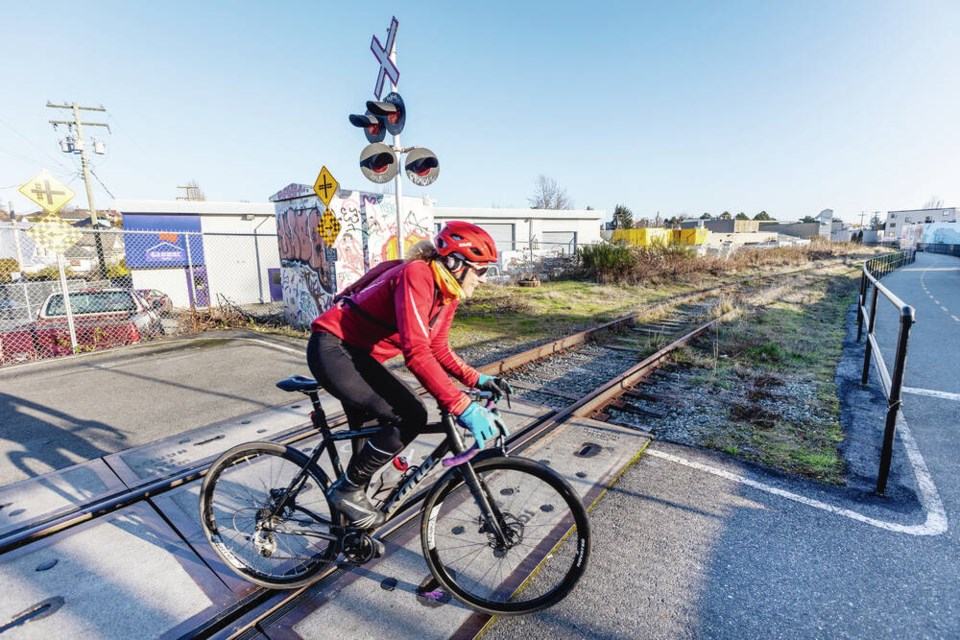Five First Nations members have resigned from the board of the Island Corridor Foundation as the campaign to win federal backing for railway service closes in on a March 14 deadline.
The five board members made a motion recommending the foundation tell provincial and federal governments that it was abandoning the idea of restoring rail service on Vancouver Island, the group said in a joint statement.
They said the non-profit group should say “the ICF was stepping away from the fantasy of resuming rail activities and move forward in negotiating a new future for the rail line, to explore what else is possible.”
That motion failed in a six-to-five vote.
First Nations members who resigned are Aaron Hamilton of the Ts’uubaa-asatx at Lake Cowichan, Brent Edwards and Chris Bob both of the Snaw-Naw-As at Nanoose, Tim Harris of the Stz’uminus at Ladysmith, and William Yoachim of the Snuneymuxw at Nanaimo.
The federal government faces a March 14 court-issued deadline to indicate whether it will finance a revival of passenger and freight service on the old E&N rail corridor.
The question now is how the resignations might affect the campaign to develop a modern rail service.
The foundation, which owns the corridor, is made up of 14 First Nations communities and five Island regional districts. The corridor runs through First Nations territories and band members make up half of the 12-member board.
Vice-chair Charlene Everson of the Komoks First Nation chaired the meeting and did not vote, said a representative of the First Nations members who resigned.
A recently released report on engagement with First Nations in fall 2022 said there was limited interest in restoring rail service. It also said there was potential for First Nations to foster economic development and job creation on sections of the corridor which crosses their communities.
The group said: “We no longer see a role for ourselves in an organization that sticks its fingers in its their ears to a First Nations’ engagement report, that sticks its hand out to government for a billion dollars when there are far [more] pressing matters, and their head in the ground on the lacking business case and business plan.”
One of the estimates for restored service is $1 billion.
There is a lot of work remaining to be done on the corridor, the group said.
“We believe we can more constructively work outside of the ICF to advance the needs of our Nations and to chart a common-sense future for the E&N right-of-way.”
The Island Corridor Foundation has been a strong advocate of reviving rail service between Courtenay and Victoria with a system that serves passengers and carries freight. It predicts the cost would be about $350 million to install modern infrastructure and another $50 million annually for operating costs.
Advocates point to hoped-for economic benefits throughout the Island. They also point to the possibility of freight service to and from Port Alberni’s deep sea port and a commuter service between Langford and Victoria.
Opponents include those who do not believe the financial costs are accurate and fear they would end up being far higher. Some people would prefer to see corridor lands used for trails and multi-modal transportation.
Foundation chair Aaron Stone, mayor of Ladysmith, and Everson said in a joint statement that they are saddened that five of the six First Nations board members chose to resign.
“We understand and respect their decision but would have preferred to continue to work through the substantive issues in front of us regarding the future of the corridor, together,” Stone and Everson said.
“We will continue to work with the provincial and federal governments to support the decision making process while continuing to advocate for the equitable settlement of the historical and contemporary issues presented by First Nations in regards to the rail corridor impacts through their communities and unceded territories.”
>>> To comment on this article, write a letter to the editor: [email protected]



